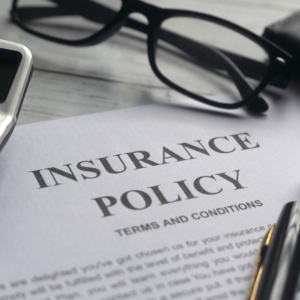In Washington, DC, bicycles and motorcycles are popular modes of transportation, offering convenience and efficiency in an urban environment. While they may share the road, bicycles and motorcycles are subject to different laws and regulations that can affect everything from how they are operated to how liability is determined in the event of an accident.
In Washington, DC, bicycles and motorcycles are treated very differently when it comes to licensing and registration.
 Bicycle License and Registration
Bicycle License and RegistrationCyclists are not required to have a license or register their bicycles with the Department of Motor Vehicles (DMV). However, they are expected to follow traffic laws just like any other vehicle on the road. Riders should be aware of local cycling regulations, which include rules about proper lane usage, signaling, and safety equipment like helmets and lights.
Motorcycles, on the other hand, are subject to more stringent regulations. Riders must obtain a motorcycle endorsement on their driver’s license, which involves passing both a written test and a skills test. Additionally, all motorcycles must be registered with the DMV, and owners must carry insurance. The minimum age to obtain a motorcycle license in Washington, DC is 18 years old.
To register your motorcycle in DC, you must provide proof of ownership (such as the current title), proof of residency, insurance, license, odometer disclosure, and registration fee.
The Temporary Visitor Exemption in Washington, DC, applies to certain non-residents or visitors who are temporarily living in the District but do not plan to establish permanent residency. This applies to commuters as well as individuals who are living in Washington, DC for a short period, such as students, military personnel, diplomats, or anyone on a temporary work assignment.

Bodily Injury Liability: $25,000 per person injured in an accident and $50,000 total for bodily injury per accident (if multiple people are injured).
Property Damage Liability: $10,000 per accident to cover damage to other people’s property.
Uninsured Motorist Coverage:
Riders who fail to carry the required insurance can face penalties, including fines, license suspension, and the impoundment of their motorcycle.
Lane splitting refers to the practice of a motorcyclist or bicyclist riding between two lanes of traffic that are moving in the same direction. Typically, this occurs when traffic is slowed down or stopped, and the motorcyclist uses the space between lanes to pass other vehicles. It is often used as a way to bypass congestion and reduce commute times.
While lane splitting can seem like a practical solution to traffic jams for motorcyclists, it can be risky because it places the motorcyclist in close proximity to other vehicles. Drivers may not expect or see a motorcycle traveling between lanes, increasing the chance of a collision when a car changes lanes or opens a door.
The legality of lane splitting varies from state to state. In Washington, DC, lane splitting is illegal, and bikers are required to stay in their designated lane, just like any other vehicle on the road.
Head injuries are among the most common and severe injuries in crashes involving motorcycles or bicycles. A helmet acts as a barrier, absorbing much of the impact during a collision or fall, thereby reducing the chances of traumatic brain injuries, skull fractures, and concussions.
Helmets can significantly reduce the risk of serious injury or death in the event of an accident for both motorcycle riders and bicyclists. In Washington, DC, helmet laws are strictly enforced for both motorcyclists and bicyclists, though the requirements differ between the two.
In DC, all motorcyclists and their passengers are required by law to wear a helmet when riding. The helmet must meet the Department of Transportation (DOT) standards for safety, ensuring it provides adequate protection in the event of an accident. Failure to wear a helmet can result in fines, and more importantly, it may affect the outcome of personal injury claims if an accident occurs and the rider was not properly protected.
Motorcycles must also be equipped with rearview mirrors on both sides to give riders a clear view of the traffic behind them. This is essential for safe lane changes and overall awareness of surrounding vehicles.
Motorcycles should have working headlights and taillights, as well as turn signals. These lights enhance visibility to other drivers, particularly in low-light conditions.
For bicyclists, DC has a more lenient helmet law. Riders 16 years of age or younger are required to wear a helmet while cycling. Although helmets are not mandatory for riders over 16, it is strongly encouraged for cyclists of all ages to wear one, as it greatly reduces the risk of head injury in the event of a crash.
Bicycles must also have working front and rear lights when riding at night. Reflectors on the front, rear, and sides of the bike are also required to enhance visibility in low-light conditions.
Accidents involving bicycles and motorcycles can be complicated, especially regarding liability, insurance claims, and potential compensation. Here are some key legal considerations to keep in mind:
DC follows a contributory negligence rule, which can significantly impact recovery. If a bicyclist or motorcyclist is found even 1% at fault for the accident, they may be barred from recovering damages. This makes it essential for riders to follow all traffic laws and safety regulations to avoid liability.
If you were wrongfully blamed for the accident that caused your injuries, a bike accident attorney in Washington DC can help determine proper liability and fight for your compensation.

The same is true for motorcycle riders struck by drivers of other motor vehicles.
In either case, it can be difficult to obtain the compensation you deserve without the assistance of an experienced attorney.
If you’re involved in a bicycle accident, consulting a bike accident attorney is the first step in protecting your rights and ensuring you receive the compensation you deserve. A specialized bike accident attorney understands the unique laws and regulations surrounding bicycle accidents, including traffic laws, liability issues, and insurance claims for bicycles and motorcycles in DC.
Determining fault in a bicycle accident can be complicated, especially if multiple parties are involved. An experienced attorney can gather evidence, interview witnesses, and work with accident reconstruction experts to establish liability, strengthening your case. Bicycle accidents also often result in significant medical expenses, lost wages, and pain and suffering. A skilled attorney can assess the full extent of your damages and negotiate with insurance companies to ensure you receive fair compensation. They can help you understand what you’re entitled to beyond just medical bills, including future medical care, lost earning potential, and non-economic damages.
Dealing with insurance companies can be challenging, as they often aim to minimize payouts. A bike accident attorney can handle all communications with the insurance company on your behalf, ensuring that your rights are protected and that you don’t inadvertently say something that could harm your case.
If your case cannot be settled through negotiation and requires a lawsuit, having an attorney with trial experience is invaluable. They can represent you in court, presenting your case effectively to a judge and jury.
Contact Regan Zambri Long today for a free consultation.